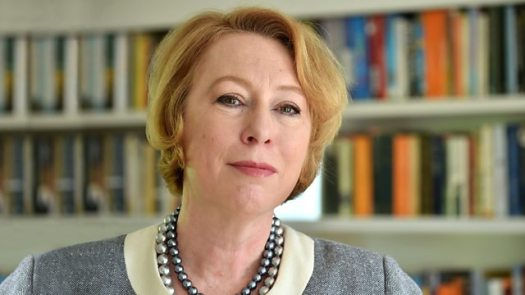Why boards should use HBR’s list of Best-Performing CEOs in the World 2017 with caution
- Ciaran Fenton
- Nov 27, 2017
- 3 min read

Harvard Business Review has recently published its annual Best-Performing CEOs in the World rankings.
Pablo Isla, Martin Sorrell and Jensen Huang are in first, second and third place respectively. Sean Boyd, Jean-Laurent Bonnafé and Ian Cook are placed 98th, 99th, and 100th.
Does this mean that your board should favour the first three over the last three as benchmarks for your CEO? The rankings suggest that you should. I disagree.
HBR has ranked CEOs using a weighting system, which favours financial performance over the other factors using an 80/20 ratio. “To calculate the final ranking, we combined the overall financial ranking (weighted at 80%) and the two ESG rankings (weighted at 10% each), omitting CEOs who left office before June 30, 2017”.
By two ESG rankings, they mean environmental, social and governance analytics as reflected in two scores: Sustainanalytics and CSRHUB. Directors who are shareholder-value merchants, red in tooth and claw, might wince at the inclusion of such wet factors. I argue the opposite: the weighting for the ESG factors is not high enough.
For example, Pablo Isla, CEO of Inditex, headquartered in Spain, is in first place while Ian Cook, CEO of USA based consumer goods company Colgate-Palmolive is in 100th place.
Let’s look at their comparative rankings: Isla scored 18, 76 and 142 for FINANCIAL, Sustainanalytics and CSRHUB respectively, whereas Cook scored 186, 167 and 89.
These suggest that while Pablo Isla outperformed Ian Cook in FINANCIAL and Sustainanalytics scores, Cook outperformed Isla in CSRHUB scores significantly. So what?
Let’s look closer at the providers of the ESG scores: “Sustainanalytics is a leading provider of environmental, social and governance (ESG) research and analytics that works primarily with financial institutions and asset managers and with CSRHUB which collects, aggregates and normalizes ESG data from nine research firms and works mainly with companies that want to improve their own ESG performance”.
CSRHUB is obviously the “softer” of the two ESG scores. Why has it the same weighting as the other ESG score? Why is governance, a crucial internal board matter conflated with environmental and social matters, both external issues?
Who decided on the 70/10/10 ratio? Why not 60/10/20? Or why not split out governance and give it a score of its own? Surely any board would link good corporate governance with risk reduction and maximizing opportunities?
Would you not be a tad miffed if you were Paul Polman, CEO of Unilever, ranked 82nd with a 177/168/17 score? His CSRHUB ranking of 17 comes as no surprise. He is famous if not infamous for his focus on non-financial performance factors. It was he who refused to report to the market on a quarterly basis.
Should he not be further up the “performance” rankings? He is, by all accounts in the financial press, trying to balance performance with developing capability and with ensuring sustainability in all its forms. But did his financial score suffer because of his CSRHUB score?
And what are we to make of his Sustainanalytics ranking of 168 against Pablo Isla’s score of 76? On which environment, social or governance (ESG) factors did he underperform his betters in the rankings?
Isn’t it the case that these rankings should be taken with a large pinch of sodium chloride?
Should HBR not use just one crude financial performance score and not attempt to take account of the ESG factors at all or look again at how it addresses non-financial performance?
I have sympathy with HBR’s dilemma. Society is increasingly vocal on behavioural matters. It’s right that HBR should reflect this. But their rankings will continue to be flawed unless and until boards catch up with society and incentivise their people on behaviour as much as performance. This shift would be reflected in the rankings since these merely mirror back what boards value. What’s measured gets delivered.
In work I do with boards, I find that those whose financial performance is strong, often suffer from hubris. Perhaps HBR should include a hubris score in their next rankings. It would be useful, if not amusing, to see what that would do to the current list.





Comments